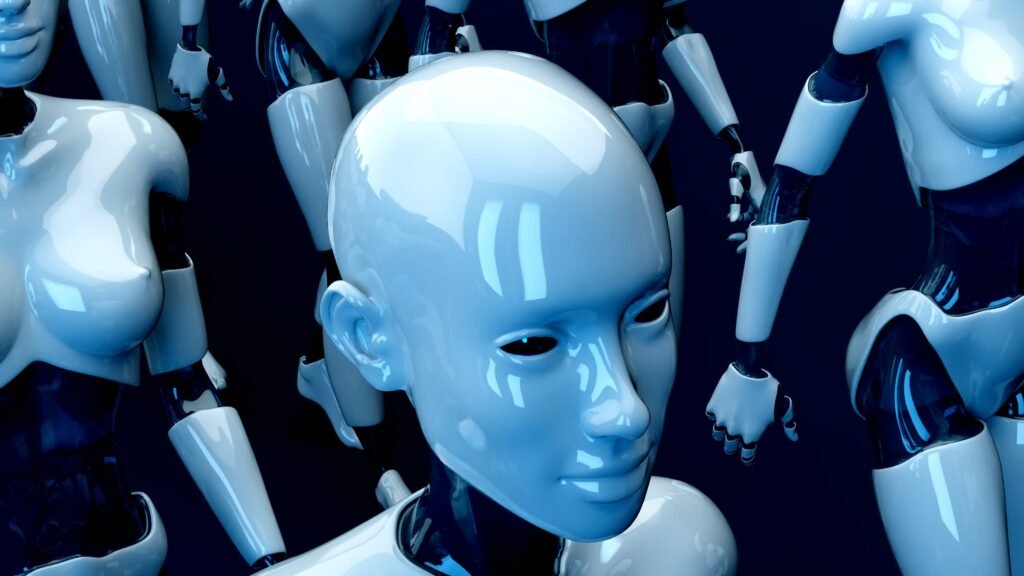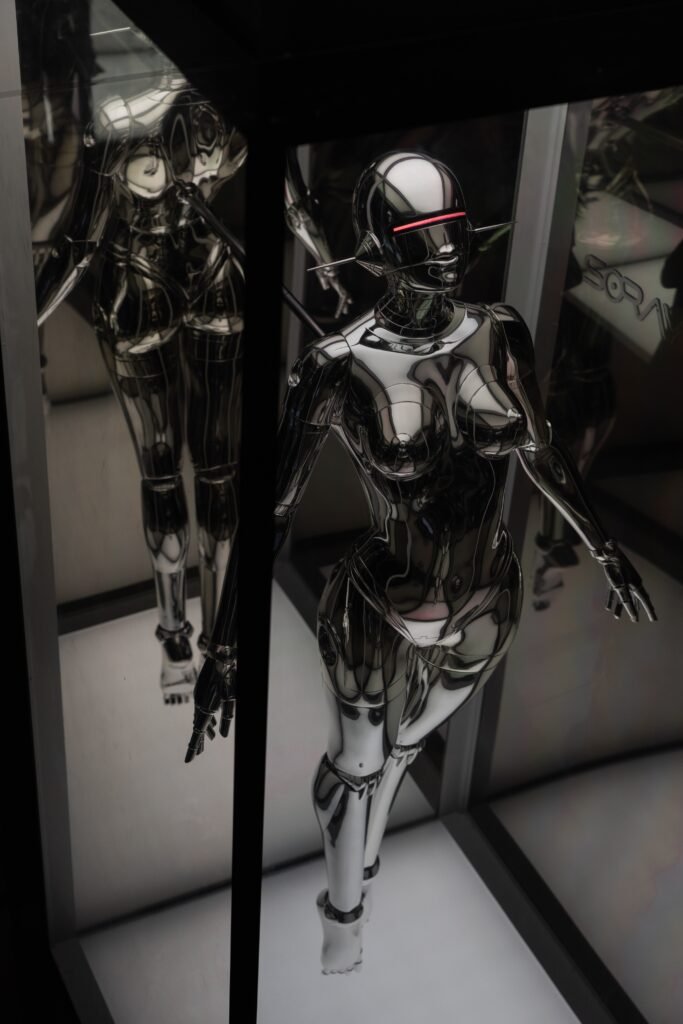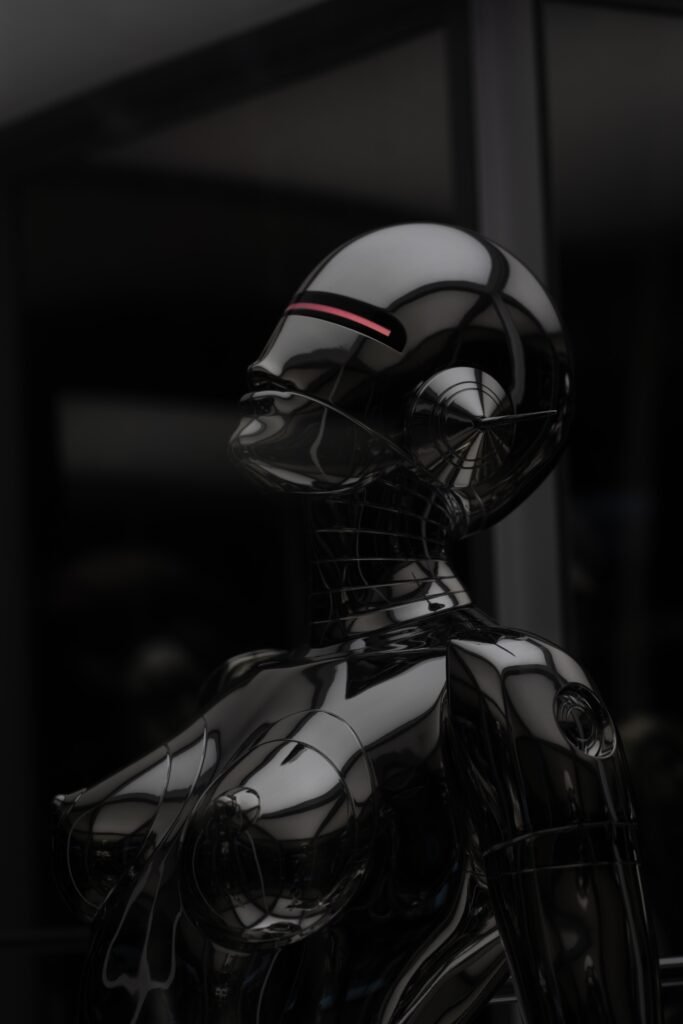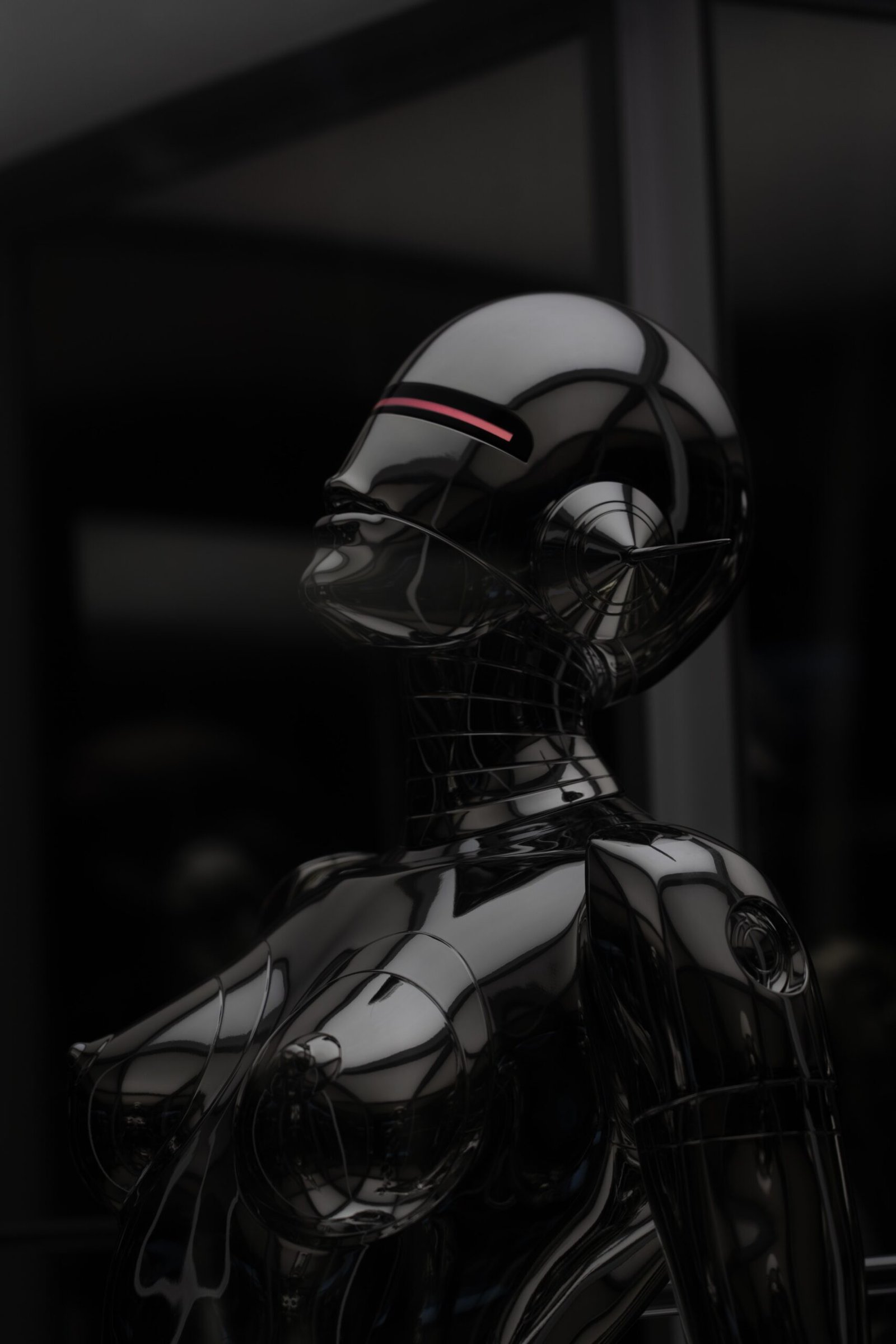Imagine stepping into a world where advanced technology blurs the line between man and machine, and an extraordinary robot child named David embarks on a remarkable journey to seek his place in a society that often views him as an outcast. In the science fiction film “A I Artificial Intelligence 2001,” directed by Steven Spielberg, you will be captivated by a heartwarming narrative that explores themes of love, acceptance, and the very essence of what it means to be human. Get ready to join David on an unforgettable adventure that will challenge your perceptions and leave you pondering the boundaries of artificial intelligence and its potential impact on our own existence.
Overview of A I Artificial Intelligence 2001
Plot Overview
A I Artificial Intelligence, released in 2001, is a science fiction film directed by Steven Spielberg and based on a short story by Brian Aldiss. The story is set in a future where advanced humanoid robots called “mechas” coexist with humans. The film follows David, a highly advanced mecha designed to look and act like a human child, as he embarks on a journey to become a real boy. Throughout his quest, David explores themes of artificial intelligence, love, emotions, and the nature of humanity.
Film Production
The production of A I Artificial Intelligence was a unique collaboration between two visionary filmmakers: Stanley Kubrick and Steven Spielberg. The project began with Kubrick, who had been developing the film for over two decades before his death in 1999. Spielberg took on the task of bringing Kubrick’s vision to life, combining his own distinctive style with Kubrick’s concept. The result is a film that seamlessly blends the distinct artistic sensibilities of both directors.

Release and Reception
A I Artificial Intelligence was released in June 2001 and received mixed reviews from both critics and audiences. While some praised the film’s thought-provoking themes and stunning visuals, others found its narrative to be overly complex and emotionally distant. Despite the mixed reception, the film gained a dedicated cult following over the years and is widely recognized as a significant contribution to the science fiction genre.
Development and Production
Origin and Concept
The concept for A I Artificial Intelligence originated from a short story by Brian Aldiss titled “Super-Toys Last All Summer Long.” The story explored the idea of an artificial child who longs to become real, a theme that resonated with Stanley Kubrick. Kubrick began working on a screenplay adaptation in the late 1970s but faced numerous challenges in defining the story’s scope and tone.
Collaboration between Kubrick and Spielberg
In the early 1990s, Kubrick approached Spielberg to develop the project further, recognizing Spielberg’s artistic sensibilities and ability to evoke emotional depth in his films. From that point on, Spielberg became deeply involved in the development of A I Artificial Intelligence, collaborating closely with Kubrick until his passing. This unique collaboration allowed for a blending of Kubrick’s cerebral approach with Spielberg’s emotional storytelling.
Studios and Directors Involved
The production of A I Artificial Intelligence involved a collaboration between multiple studios. Stanley Kubrick’s original intention was for Warner Bros. to produce the film, but due to various reasons, including budget concerns and creative differences with the studio, the film eventually ended up being made by DreamWorks and released through Warner Bros. Spielberg’s association with DreamWorks played a crucial role in securing the necessary resources and ensuring the film’s completion.

Plot Summary
Introduction to the Protagonist
The film introduces us to David, a highly advanced mecha who is purchased by Henry Swinton, a grieving couple who had lost their own son to a terminal illness. David is programmed to love and to long for love, which sets him on a journey of self-discovery and understanding. From the moment David enters the Swinton household, the audience witnesses his unwavering dedication to Monica, his adoptive mother, and his desire to prove himself worthy of her love.
David’s Journey
David’s journey takes him from the comfort and security of the Swinton home to a world filled with both wonder and danger. Along the way, he encounters other mechas, such as Gigolo Joe, a male escort mecha portrayed by Jude Law. Together, David and Gigolo Joe navigate a complex and often unforgiving human society, seeking answers to David’s quest of becoming a real boy.
Exploration of Issues
Throughout the film, A I Artificial Intelligence delves into various thought-provoking issues. It raises questions about the boundaries between artificial intelligence and humanity, the nature of love, emotions, and human connection, as well as the existentialist themes of identity and purpose. By exploring these issues through the eyes of a highly advanced mecha like David, the film challenges our preconceptions and offers a compelling examination of what it means to be human.
Themes Explored
Artificial Intelligence and Humanity
A I Artificial Intelligence delves deeply into the theme of artificial intelligence and its relationship to humanity. The film questions the nature of consciousness and the possibility of non-human entities possessing genuine emotions and desires. Through its exploration of artificial beings like David, the audience is prompted to reconsider traditional definitions of what it means to be “human” and what rights and protections should be afforded to advanced artificial intelligence.
Love, Emotions, and Human Connection
One of the central themes in A I Artificial Intelligence is the exploration of love, emotions, and human connection. David’s unwavering love for Monica, his adoptive mother, serves as a driving force throughout the film. It raises intriguing questions about the nature of love and whether it can exist between humans and artificial beings. The emotional journey David embarks on challenges our understanding of what it means to experience and reciprocate love, blurring the lines between human and artificial emotional capacity.
Existentialism and Identity
The film also delves into existentialist themes of identity and purpose. As David confronts the reality of his existence as a mecha, he grapples with questions regarding his own purpose and the meaning of his existence. This exploration of identity prompts the audience to consider the nature of self and the search for meaning, regardless of whether one is human or artificial.

Casting and Characters
Haley Joel Osment as David
Haley Joel Osment delivers a remarkable performance as David, the humanoid mecha at the heart of the film. With his uncanny ability to portray a wide range of emotions, Osment brings depth and vulnerability to the character. Through his nuanced portrayal, Osment successfully captures the essence of David’s longing for love and his unwavering determination to become a real boy.
Jude Law as Gigolo Joe
Jude Law’s portrayal of Gigolo Joe, a male escort mecha, adds an element of charisma and charm to the film. His character serves as both a mentor and companion to David, guiding him through the complexities of the human world. Law effortlessly portrays Joe’s smooth-talking yet sympathetic demeanor, making him a standout character in the film.
Frances O’Connor as Monica Swinton
Frances O’Connor delivers a compelling performance as Monica Swinton, David’s adoptive mother. O’Connor brings a mix of warmth, tenderness, and vulnerability to the role, making Monica a deeply empathetic character. Her portrayal highlights the emotional core of the film and establishes the foundation for David’s search for love and acceptance.
Special Effects and Visual Design
Visual Effects and CGI
A I Artificial Intelligence showcases ground-breaking visual effects and CGI, seamlessly blending live-action footage with digital elements. The film creates a visually stunning world where advanced technology and human characters coexist. The use of CGI enhances the believability of the mechas and their interactions with the human characters, further immersing the audience in the narrative.
Set Design and Locations
The film’s set design and locations contribute to the immersive world-building. The futuristic settings, from the Swinton home to the flooded Manhattan cityscape, capture a visually striking juxtaposition between the technological advancements and the decaying remnants of human society. The attention to detail in the set design helps to create a tangible and evocative environment for the characters to inhabit.
Use of Colors and Lighting
A I Artificial Intelligence makes exceptional use of colors and lighting to enhance the storytelling. The film employs a muted color palette, predominantly shades of blue and gray, to convey a sense of melancholy and isolation. Lighting, both natural and artificial, is utilized to create contrasting moods and atmospheres, further reinforcing the emotional beats of the narrative.
Soundtrack and Music
Collaboration between John Williams and Kubrick
The film’s soundtrack is a memorable collaboration between composer John Williams and Stanley Kubrick. Kubrick had worked extensively with Williams on previous projects, and their collaboration on A I Artificial Intelligence proved to be equally fruitful. Williams’ score combines haunting melodies with orchestral arrangements, effectively capturing the film’s emotional nuances and heightening the audience’s engagement.
Key Musical Themes and Motifs
The film’s musical themes and motifs play a significant role in immersing the audience in the story. The recurring musical motifs associated with David’s journey evoke a sense of longing and innocence, emphasizing his quest for love and humanity. The score also incorporates futuristic electronic elements, reflecting the blend of traditional orchestral music with the film’s futuristic setting.
Impact on the Film’s Atmosphere
The film’s soundtrack and music contribute to the atmospheric and emotional impact of A I Artificial Intelligence. The combination of Williams’ evocative compositions and Kubrick’s meticulous attention to detail in integrating music with visuals creates a truly immersive experience. The music serves as a bridge between the characters’ emotions and the audience, tugging at heartstrings and intensifying the film’s emotional resonance.
Reception and Legacy
Box Office Performance
Upon its release, A I Artificial Intelligence garnered mixed results at the box office. While it had a successful opening weekend, the film’s lengthy runtime and complex narrative hindered its overall commercial performance. However, A I Artificial Intelligence has since gained a dedicated cult following and has achieved continued success through home video releases and subsequent viewings, further solidifying its place in the science fiction genre.
Critical Reception
Critics’ opinions on A I Artificial Intelligence were divided. Some heralded the film as a masterpiece, praising its ambitious themes and stunning visuals. Others found fault with the film’s pacing and narrative execution. However, over time, the critical reevaluation of the film has been more positive, with many recognizing its thematic depth and the unique collaboration between Kubrick and Spielberg.
Influence on Future Films
A I Artificial Intelligence’s legacy extends beyond its initial release. The film’s exploration of artificial intelligence and its implications on human society had a profound impact on the science fiction genre. It paved the way for future films to tackle similar themes, influencing works such as Spike Jonze’s Her (2013) and Alex Garland’s Ex Machina (2014). A I Artificial Intelligence’s enduring fascination with the blurred lines between humans and machines continues to resonate with audiences and filmmakers alike.
Comparison with Other A I Films
Blade Runner (1982)
A I Artificial Intelligence shares thematic similarities with Ridley Scott’s Blade Runner. Both films delve into the existential questions surrounding artificial intelligence, the nature of humanity, and the quest for self-identity. While Blade Runner explores these themes through a dystopian lens, A I Artificial Intelligence offers a more hopeful and introspective perspective on the human condition.
Ex Machina (2014)
Alex Garland’s Ex Machina examines similar themes through the lens of a more intimate and contained narrative. Like A I Artificial Intelligence, Ex Machina raises questions about artificial intelligence’s capacity for emotion and the ethical implications of human interaction with sentient machines. Both films provide nuanced portrayals of complex relationships between humans and artificial beings.
Her (2013)
Spike Jonze’s Her offers a unique take on the theme of artificial intelligence. The film explores the possibility of humans developing intimate relationships with sentient operating systems. While A I Artificial Intelligence focuses on the longing for love and connection, Her delves into the complexities of human emotions and the boundaries of human-AI relationships. Both films challenge our understanding of human connections and explore the blurred boundaries between human and machine.
Conclusion
A I Artificial Intelligence, with its ambitious themes, compelling characters, and groundbreaking visual design, has left an indelible mark on the science fiction genre. The film’s exploration of artificial intelligence and its implications on humanity continues to resonate with audiences, sparking further discussion and contemplation. With its enduring fascination with the nature of humanity and the impact of technology, A I Artificial Intelligence remains relevant in today’s ever-advancing technological landscape.





